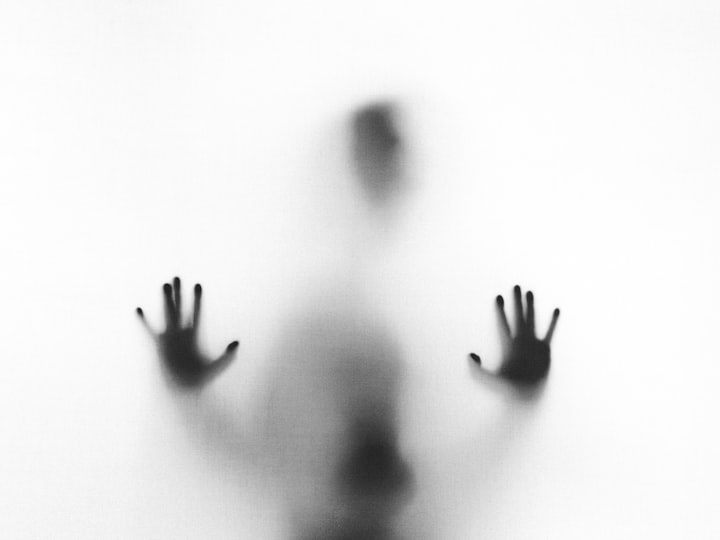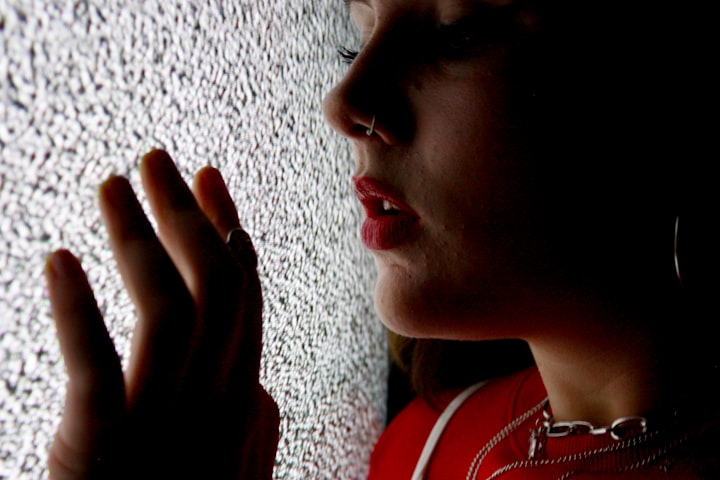The Man Who Saw Me
A Father Figure in Small Moments

Introduction
Vocal gave nearly 3 weeks to write a reflective essay for the Father’s Footprint Challenge. I started writing 29 hours before it was due.
I like to enter every Vocal challenge to try different skills, but an essay about a father figure who shaped my identify? Both men who immediately came to my mind (my father and a long-time teacher) seemed too complicated to discuss in an essay. There were too many moments to parse and feelings to sift. I’d all but given up on the prompt.
I recently started teaching To Kill a Mockingbird again, and Atticus is absolutely my favorite fictional character. So I started thinking about the men in my life who were similar to Atticus–providing powerful guidance in fewer words, giving seeds of wisdom in small moments. Perhaps their relationships weren’t as complicated, but just as powerful.
And there is a man who, with a gentle approach and few words, helped mold me into the person I became.
Transparency and Acceptance

At the beginning of my seventh grade year, we were introduced to a new band teacher: Mr. Brown*. This was my third year in band and I had not learned to read music. (And after several more years of band and choir, I never would.) I pretended to play the first time through, and once I heard everyone else, I could play, too.
There is no way that the teacher didn’t know this. Maybe I thought I was sly to my fellow bandmates, but I knew he saw me, and I also knew he would let me do it my own way. That became our entire dynamic: He saw me exactly as I was and let me be that person.
On Your Own

Sixteen months after I met Brown, I took revenge on a long-time bully (a chaotic situation beginning years before the actual fight). For months, every teacher knew this fight was inevitable, and one sunny afternoon, the anger and bitterness erupted–in Brown’s classroom.
Decades later, most of the fight is a blur of emotion-fueled flashes, but I remember looking at Brown, meeting his eyes, and him walking out of the classroom.
I’m sure most adults would see this action as a misstep; I certainly understand that logic, but Brown had information and wisdom I didn’t know then. First, this fight ended the years-long tension. The relationship wasn’t repaired, but the hate was diluted enough for everyone to co-exist. Second, he was betting that neither of us were actually violent enough to seriously injure the other. Third, my years of logical arguments had only fueled the bigotry; I was either going to have to walk away or raise the bar, and I wasn’t in a place in my life where I could walk away. Brown knew that as much as I did.
Again, he saw something in me, truly saw me, and he was going to let me handle it myself. As far as I was concerned, I was standing up for people in every group this teen hated, and Brown knew it. He took an enormous risk walking out of that classroom, and for weeks, I worried he would receive some type of disciplinary action (maybe even lose his job!) for not stopping the fight, but no one ever said anything about it, and I was eternally grateful for his lack of interference.
After three years, he was promoted (if that’s how you look at it) to vice principal of the high school. Although I’d miss him as a band teacher, ultimately, I was beyond thankful for his new role; I would need him more than I could have predicted (although maybe he could have). Looking back, sincere gratitude is the strongest emotion I feel about Brown, for good reason.
I’m Not Doing That

In the first spring of his VP job, I calmly, but defiantly, walked out of a class. The details aren’t important, but I knew it would be Brown that would have to deal with me–and the fallout. So after leaving class, I walked to the office and patiently waited for him to finish his current task. When an office assistant waved me in, I dropped my backpack by the door and half-fell into a chair as he leaned back in his own.
He gently asked what was going on, and when I told him I did something and was sorry he would have to deal with it, he simply simpered. When I clarified I had walked out of a class, the smile faded and he bolted upright in his chair. When he simply asked “Whose?” I confirmed it was band–which his predecessor now taught (and it was rumored they weren't particularly friendly).
I read his thoughts on his face; this was going to be difficult, and he was annoyed that I placed him in this position. Yet, I saw no anger or resentment. We barely talked before the teacher stormed in, threw his papers on Brown’s desk, and started yelling. Brown convinced him to sit down, and the three of us talked for a few minutes, but the teacher was livid and demanded I apologize to the entire class for disrupting their learning experience. (Ultimately, this was resolved several days later when other students came to my defense.) After making this demand, the teacher stormed out, leaving Brown and me to finish our conversation.
I raised my eyebrows and shook my head. “I’m not apologizing,” I told Brown. When he told me I had to, I reiterated my defiance. “You’ll just have to give me detention or something.” With this simple sentence, I acknowledged that I had made a mistake (even if I wasn’t sorry) and that I recognized his authority as the school’s disciplinarian, and that deep respect and acknowledgement was a soft side of me most people never witnessed.
“I’m not doing that,” he told me. My only choice was to apologize because that was the only consequence the teacher had demanded. This dialogue continued for a few minutes: Me refusing to apologize and him refusing to give me different consequences. I know another adult would have said If you don’t apologize, I’m going to [terrible list of consequences]! but his simultaneously gentle and direct communication with me resonated much deeper than threats ever could.
I told him I’d see him in a few days when I was ordered to complete different consequences after refusing to apologize, and he implied that we’d deal with that if it happened. Emotionally spent, I picked up my backpack, apologized for dragging him into this mess, and thanked him. His simper returned, and I hid a smile as I left the room.
No Rush

On a Friday afternoon roughly a year later, I was arguing with a friend as I was leaving for the day, and I accidentally kicked the school’s door cross bar far too hard. The door’s glass cracked like a beautiful, complex spiderweb, and my friend and a poor, terrified freshman kid froze, mouth agape. I felt instant regret, but as I was already running late, I assured my witnesses I’d address it on Monday.
When I arrived at school on Monday, someone had covered the cracks with clear packaging tape, and, somehow, the door remained intact. I walked past my class to the office and tossed my backpack on Brown’s floor. He looked up as I nervously, jokingly said, “Hey, you know the door that’s shattered?”
His eyes widened with excitement as he asked me if I knew who did it, and when I immediately confessed, his expression changed to shock. However, when I told him the rest of the story, including my anger, his surprise turned into quiet amusement. He was trying to think of the right consequence when I volunteered to pay for the replacement. This amused him even more, especially when I pressed that the school should spare no expense. When I inquired about additional consequences, he told me that payment for the door was enough. In fact, he was grateful that I’d taken responsibility. After talking a few more minutes, I left the office filled with relief.
A few days later, he awkwardly presented me with the bill–under $200. I had expected double or triple that amount. (Why would a 17-year-old know how much door glass costs?) “Whenever you can pay,” he assured me. “No rush.” I grinned and wrote a check the next day. To me, that was the first time I had ever completely taken responsibility for my mistake and immediately fixed it. I was planning to live on my own in a few weeks, and this made me feel like I might be able to actually succeed.
Over the six years that Brown served as my teacher and vice principal, there were plenty of small interactions, many of which I’m still appreciative, but those three supportive, hands-off moments remain with me most. Later, I learned that he had experienced his own difficult adolescence, and he had a greater understanding of my ongoing chaos and barely checked anger, certainly more than most of my teachers.
The Power of Being Seen

During my tweens and teens, even those who knew me best didn’t really know me. I rarely removed the facade–my own tape somehow keeping me intact. Additionally, like most teenagers, I was significantly more likely to have excuses than apologies, and admitting I was wrong was rarer than a miracle. Dealing with me required more patience than most people possessed, and I regularly smothered my anger just at the surface.
Would I have admitted my mistakes and apologized to another vice principal? Absolutely not. In a time of people constantly teaching me to do things the “right” way, Brown let me find myself. I was surrounded by adults who wanted to fix everything or intervene before I made poor choices; Brown did neither. In a world of people threatening me with laundry lists of punishments for my stubbornness, Brown simply stated that he expected me to do what was right.
He appreciated me as I was then. He didn’t tell me that I was too angry, and he accepted that my mistakes were simply mistakes, not premeditated plots. He had a unique seat to see my hell and immediately understood.
I’m an educator now, and a lot of how I interact with students mimics Brown’s approach: High expectations but gentle speech. In that way, he impacted my professional life. But he impacted so much more than that.
Quiet Strength

When we think of father figures and male role models, we often think of god-like heroes who support us in our worst moments and celebrate with us in our best, and I won’t argue that that is a type of model. However, placing people on pedestals almost always backfires, and the expression “don’t meet your heroes” exists for a reason.
With Brown, there were no unreasonable expectations–from either of us. We both acknowledged each other’s flawed humanity and didn’t expect more than what the other could provide. Yet, I respected him more than I respected almost any other adult, and I wanted him to be proud of me–just as any child would want of their parent.
Brown taught me that respect, love, or admiration didn’t have to be all-or-nothing, and that working to make amends often leads to easier forgiveness and fewer consequences. He taught me that a simper (or grin or frown) and a few words can have significantly more impact than hours of arguments, speeches, and lectures.
Perhaps most importantly, he taught me that simply seeing someone as they are, and accepting them that way, can make even the most vulnerable person feel protected. When I felt like everyone was against me (including my "heroes"), when I was taking enormous risks standing up to misogynistic anti-Semites, when teachers were screaming at me, and when my anger was bubbling over the surface, I knew I still had one man in my corner.
Without Brown, I would have struggled to evolve into a kinder, more patient human. If there is one person in my life--be it a friend, mentee, or student–who feels about me the way I felt about him, I will have made the world better.
About the Creator
Alex Casey
I'm a full-time educator and part-time writer. My best ideas usually end up on Vocal.
Enjoyed the story? Support the Creator.
Subscribe for free to receive all their stories in your feed. You could also pledge your support or give them a one-off tip, letting them know you appreciate their work.






Comments
Alex Casey is not accepting comments at the moment
Want to show your support? Send them a one-off tip.